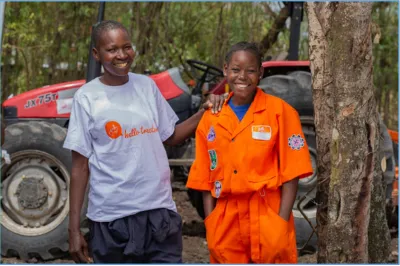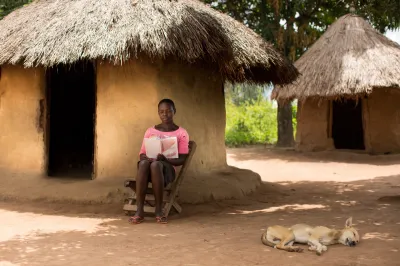Count Them…4 Mobile Money Services Now Live in Tanzania
This blog post is co-authored by Sarah Rotman from CGAP and Mireya Almazan from the Bill & Melinda Gates Foundation.
About a year ago, Sarah blogged on the mobile money landscape in Tanzania, comparing many features of the three mobile money services. In particular, she looked at Vodacom’s M-PESA, Zain’s Zap and Zantel’s Z-PESA. Many other people were analyzing the same market around this time, including Amrik Heyer and Daniel Laiser cited here, as well as Gunnar Camner, Emil Sjoblom and Caroline Pulver in this GSMA Case Study.
Mireya has been spending time in Tanzania getting a close-up view on this interesting market. In particular, she’s been there for the recent launch of the newest mobile money service in Tanzania, TigoPesa, which is the latest reminder of the massive potential in this country to expand financial services to the poor.
TigoPesa, created by Tanzania’s fastest-growing mobile network operator, Tigo, is the fourth mobile money service offered in Tanzania. Vodacom Tanzania, a subsidiary of the Vodafone Group, is the leading mobile network operator with a 37% market share. Its M-PESA mobile payment service, which launched in early 2008, is currently the most recognized and widespread in the country. But Tanzania’s other major mobile operators, Zain (with 30% market share), Zanzibar-focused Zantel (with 8% market share), and now Tigo (with 25% market share), are following Vodacom’s lead in offering mobile money services. Zantel launched Z-PESA at roughly the same time as M-PESA, Zain’s Zap mobile money service has been in the market since early 2009, and TigoPesa launched just a few weeks ago.
We estimate that, primarily driven by M-PESA, Tanzania’s overall mobile money market is now approaching 1 million active customers, an important milestone at which economies of scale may start to kick-in. With four operators now aggressively marketing their mobile money services and building up their agent networks, general awareness levels on how to access menus (all but Zap being USSD-based) and how to cash-in/out, as well as the overall benefits of such services, have grown significantly in the last few months.
These are encouraging developments in a market that has been characterized by slow uptake and usage of mobile money, compared to the glaring success of Safaricom’s M-PESA in neighboring Kenya. Although the mobile banking sector is still at a relatively early stage of development in Tanzania, the potential to expand financial access to underserved populations is significant. The vast majority of Tanzania’s population lives under $2 per day and only 12% has a formal bank account, yet most has access to a mobile phone. Mobile network operators, facing intense competition in a highly fragmented market, have seized on this potential new market by rolling-out payment services and mobile wallets. In fact, the market structure of the mobile industry in Tanzania is one of the most important differentiating characteristics with that of neighboring Kenya. You can’t get much more of a contrast than a market where Safaricom had practically 80% market share when it launched M-PESA 3 years ago, a circumstance which is simply not there in most markets.
It has been clear for some time that the quick success of mobile money in Kenya was not to be easily replicated next door, nor in the over 40 countries that have launched mobile money deployments since 2003. Yet Tanzania appears to be developing its mobile money market at a commendable rate, and can potentially yield multi-player models that we have yet to see elsewhere. This is the partnership model Ignacio Mas blogged about recently, where operators could potentially share the cash merchant network in order to consolidate their transaction volumes at the store level, which can also be leveraged by banks seeking to expand their footprint.
With four MNOs vying for the loyalty and attention of customers, and with less than 500 bank branches serving the entire country, neither MNOs nor banks have the luxury of ignoring mobile money offerings.
- Sarah Rotman & Mireya Almazan




Add new comment